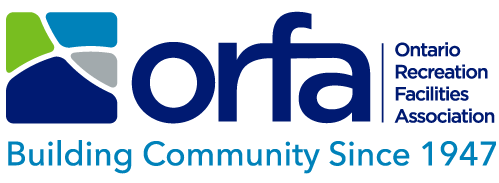- ORFA Home
- The Recreation Facility Profession
- ORFA News and Alerts
- ALERT - Facility Focus: Winter 2025/26 Operational Reminders
ORFA ALERT
Facility Focus: Winter 2025/26 Operational Reminders
September 4, 2025
Introduction
Seasonally, the ORFA supports facility members with key information related to seasonal tasks, risks and hazards that may impact staff and facility operations. Recreation facilities have traditional start-up activities and general maintenance tasks, but also have site specific equipment, systems and policy that requires investment as well. The following are tasks that each operation should revisit alongside to ensure your facility is prepared this winter.
Facility Air Quality
Recreation infrastructure air quality has significantly evolved in the past years. The complexity of equipment, technology and operational variables requires operators that understand the subject, as well as how the building has been designed to maintain safe indoor air quality. Public health professionals remain diligent in their responsibility to ensure that those who enter any public facility are safe, while the Ministry of Labour, Immigration, Training and Skills Development (MLITSD) remain focused on worker safety. The foundation to meeting the objectives for public and staff safety is facility staff’s awareness of the risks and hazards. Knowing internal staffing limitations while scheduling qualified technician support for equipment and systems is an important facility management responsibility. The ORFA offers a variety of educational opportunities as well as a selection of resources to assist in meeting this objective.
Refer to: Guidelines for Indoor Air Quality in Arenas & Recreation Facility Indoor Air Management Guideline
Facility Detection Systems & Alarms
Today’s recreation facilities are outfitted with a variety of detection and alarm systems that continually monitor building function, risks and hazards. Some devices are mandatory with set regulatory and manufacturer calibration, maintenance and testing obligations. Operators must be trained to identify what each detection device and alarm is warning about when activated, to ensure action can be taken when required.
Refer to: The Importance and Benefits of Planned Facility Sensing Maintenance and Equipment Calibration
Facility Rules and Codes of Conduct Review
Recreation facilities often display a variety of posted expectations surrounding public and participant conduct. These operational tools require annual confirmation that they remain current and up to date. In addition, a confirmation that the signage is legible, in good condition and the same in all posted locations is critical. This information should be included in facility contracts where applicable to ensure user awareness, as well as form an important contractual requirement for use of the amenity.
Refer to: Monitoring Facilities Code of Conduct & Unpermitted Activities in Public Areas of Recreation Facilities
Preventative Facility Winterization
Before the cold weather and snow arrives, it is important to check all outdoor lighting, parking lot and walkway conditions, roof materials and building envelope tightness conditions (i.e. Windows, Doors). Flat roof and parking lot drains should be inspected and cleared to allow for proper facility and site drainage. A reminder that this work is more easily performed when the days are warmer and in prevention vs reactive response.
Facility Fossil Fuel Care
Recreation facilities use a variety of operational equipment that requires portable fossil fuels, including but not limited to liquid fuel, propane and natural gas. Facility managers are reminded of their obligations to properly store each of these chemicals ensuring that they meet WHMIS regulations, and that SDS and PPE are available where required to utilize. In addition, determining what training is required to ensure workers are competent in the use of fossil fuels is a mandatory expectation.
Exercising of Facility Service Valves
A reminder of the importance to exercise all building service valves. These valves are critical to control maintenance of building equipment and systems and as such must be regularly turned and serviced to ensure that they continue to perform as designed. Including these as part of preventative maintenance programs with service contractors is considered diligent.
Emergency Preparedness Review
Expecting the unexpected while being adequately prepared to respond to the different emergency situations specific to each building is an important investment for all occupants’ safety. Confirming that components such as all fire suppression devices, AED’s, evacuation chair lifts, and first aid kits are in place and in proper working order is critical. In addition to facility equipment and components, facility staff are an equally important part of emergency planning and will require an ongoing investment to ensure they can properly respond when an emergency event occurs.
Refer to: Recreation Facility Emergency Planning & Maintaining a Recreation Facilities Fire/Emergency Equipment and Safe Environment
Conclusion
Facility preparations require proper planning and management to be successful. The ORFA Resource Centre offers a variety of additional tools to assist recreation professionals in these efforts. ORFA educational courses offer both a history of proven investment from past practitioners with an inclusion of real time changes to legislative obligation and industry best practices. Have a safe and productive winter season.
